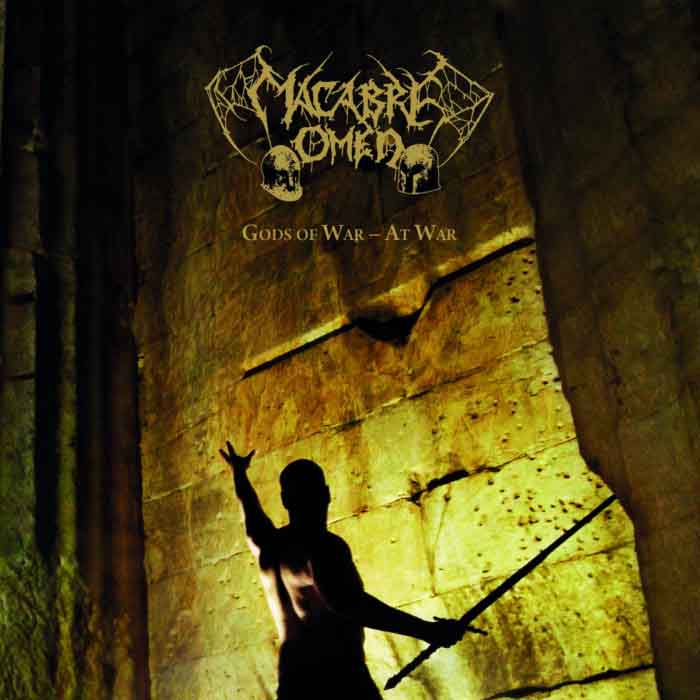During black metal’s most creatively fertile period in the early 1990s, a handful of Greek musicians forged an alternative musical path noticeably different from that of their Nordic peers. Their efforts would subsequently crystallize into the Hellenic black metal sound or style.
The original founding bands Rotting Christ, Varathron and Necromantia laid down the template for a distinct and comprehensive mode of expression, instantly recognizable through its techniques and production values. Similar to the attempts of early continental black metal groups like Samael, Master’s Hammer, Root and Mortuary Drape the Greek bands stayed half-rooted in heavy- and speed- metal while surging towards the compositional, technical and conceptual horizons forged by 1980s proto-underground death/black metal.
Not surprisingly, many native and non-Greek bands have sought to recreate the Hellenic sound throughout the years. Buth whether it concerns faithful carbon-copying of surface traits or the assimilation of particular idiosyncrasies as exotic flavoring, it has proven difficult to match the quality of the classic recordings. Even the originators themselves soon failed to uphold the compositional standards of their early works although still working with a similar set of techniques and aesthetics. This is not an unusual phenomenon. Just think of the “Sunlight-syndrome” of Swedish death metal where the outward signs of excellence lives on long after the initial burst of creativity has been extinguished — like a silent witness to the achievements of a once great but now degenerate civilization.
Twenty years after the last Greek black metal releases of note, Macabre Omen embarks on a perilous quest to restore the glory of Hellenic metal with their second album Gods of War – At War (2015). While coming off as an amalgamation of Rotting Christ, Bathory (circa Hammerheart / Twilight of the Gods) and Manowar, the band infuse their songs with enough personality and direction to avoid accusations of pastiche or potpourri. And thankfully, unlike previous tributaries of Greek black metal Macabre Omen are tasteful enough to abstain from copying the original bands wholesale, instead choosing to adapt the older styles to their own songwriting and artistic vision. The typical Greek-style “warm”-sound, staccato/palm-muted riffing and lead-guitar harmonies are present, but are applied wisely and not as an excuse for idea drought.
Although common extreme metal characteristics abound, Gods of War – At War is at heart oriented toward heavy metal music with a strong emotive character. However, Macabre Omen avoids much of the blockheadedness of said genre by crafting their songs in a fluent and dynamic manner similar to Rotting Christ’s Thy Mighty Contract. Long melodies gradually unfold — passing through series of transformations, related melodies and re-evaluations through counter-thematic juxtapositions bound together by brief bridge-sections, etc. — before exploding full regalia in liaison with a triumphant chorus of Viking-era Bathory/Manowar proportions, bringing resolution before lapsing into the next cycle of musical events.
The melodic framework which constitutes the skeleton of these battle hymns is set into motion by competent and varied percussion. The drumming suffers somewhat from a tendency towards 1980s heavy metal flamboyance but never strays too far to disconnect from the rest of the music. Strings and skins integrate well, providing a favorable environment for the conjuration of mental images. For example, one can’t help but associate the Bathory-inspired “rowing” rhythm with the sound of triremes traversing the Mediterranean.
Gods of War – At War contains the proper ingredients for an engaging sonic journey. However, there are issues which hinders this album from reaching its full potential, cutting it short from being a truly immersive experience. One of the main feats of the album is that most of the songs have a sense of direction: they go somewhere. The downside is that most of the time they go to the same somewhere, namely the triumphant sections as described above. This does not annoy much on an occasional listen, but the predictability will wear the listener out through repeated listening.
Furthermore, Macabre Omen frequently goes overboard in their employment of introductions, contrasting middle-sections and layers of additional instrumentation, effects and chanted vocals to add extra “epic-ness” and variation to the ground-material. What worked for a delicate and imaginative composer like Quorthon at his prime unfortunately translates into top-heavy music on Gods of War – At War, which occasionally forces the band into writing more predictable and simple songs. Consequently, the tracks on the album with less extraneous elements are consistently more effective and powerful, while the more over-indulgent songs come across as swamped and prone to banal rock-cheesiness.
Regardless of its deficiencies, there is an admirable boldness to Gods of War – At War. Its forcefulness and direction conveys a desire to expand upon a style that appeared to be hopelessly set in stone. While only partly succeeding at their endeavor, Macabre Omen instills expectations for the future. This album is superior to many of the so-called “lost gems” of 1990s Hellenic black metal and rises above the majority of contemporary metal releases as well.
